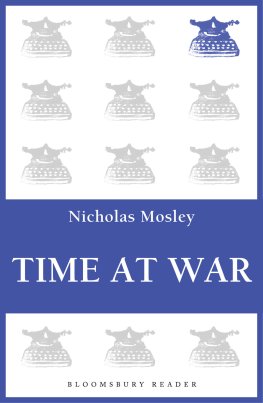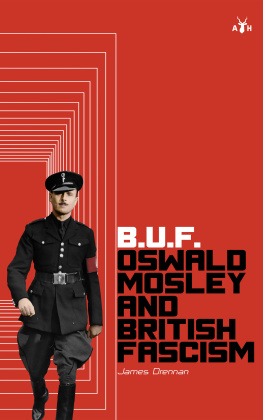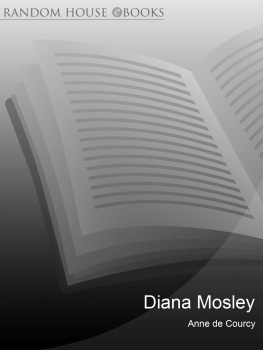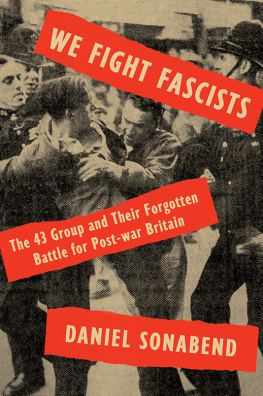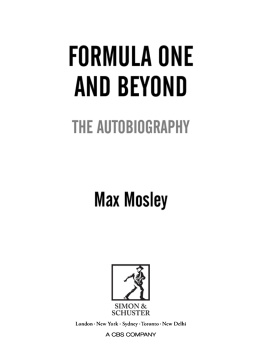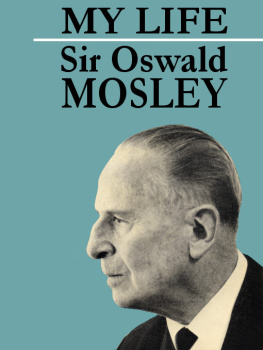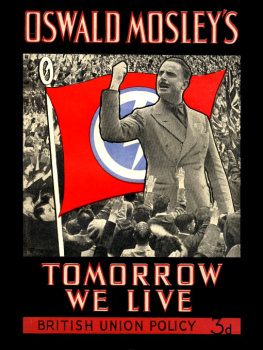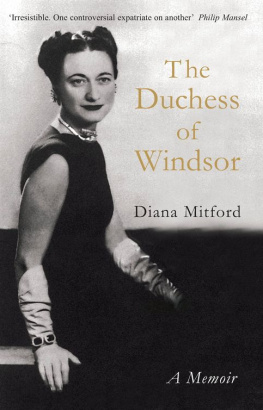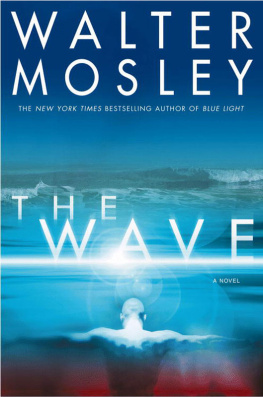Oswald Mosley - My life
Here you can read online Oswald Mosley - My life full text of the book (entire story) in english for free. Download pdf and epub, get meaning, cover and reviews about this ebook. City: New Rochelle;N.Y;, year: 1972, publisher: Arlington House, genre: Non-fiction. Description of the work, (preface) as well as reviews are available. Best literature library LitArk.com created for fans of good reading and offers a wide selection of genres:
Romance novel
Science fiction
Adventure
Detective
Science
History
Home and family
Prose
Art
Politics
Computer
Non-fiction
Religion
Business
Children
Humor
Choose a favorite category and find really read worthwhile books. Enjoy immersion in the world of imagination, feel the emotions of the characters or learn something new for yourself, make an fascinating discovery.
- Book:My life
- Author:
- Publisher:Arlington House
- Genre:
- Year:1972
- City:New Rochelle;N.Y;
- Rating:5 / 5
- Favourites:Add to favourites
- Your mark:
- 100
- 1
- 2
- 3
- 4
- 5
My life: summary, description and annotation
We offer to read an annotation, description, summary or preface (depends on what the author of the book "My life" wrote himself). If you haven't found the necessary information about the book — write in the comments, we will try to find it.
My life — read online for free the complete book (whole text) full work
Below is the text of the book, divided by pages. System saving the place of the last page read, allows you to conveniently read the book "My life" online for free, without having to search again every time where you left off. Put a bookmark, and you can go to the page where you finished reading at any time.
Font size:
Interval:
Bookmark:

This book made available by the Internet Archive.





Acknowledgements
M.Y acknowledgements are chiefly due to the patience of the reader who may discover some errors of fact or quotation in a long work compiled almost entirely from memory. My papers were lost in the destruction of war, and throughout I have been remote from most of my library. The main facts have been checked by others, who have access to records. They proved correct to a degree which surprised me in the circumstances. Quotations may sometimes suffer from unaided memory introducing improvements to long-cherished passages of the classics which might not be so apparent to their distinguished authors.
My thanks are due to my wife, who has contributed both enthusiasm for this book and an acute and most critical intelligence, and to others who have been good enough to read the proofs in whole or in part. Sydney Potter was my friend during the political fight to win Birmingham in the twenties, and after a long interval has generously exercised his editorial experience in reading these pages in the sixties; younger literary friendsDesmond Stewart, Robert Skidelsky and David Ashtonhave assisted with the same task; Jeffrey Hamm and Robert Row have combined research with supporting the heavy secretarial burden; Comte Jean de Baglion has helped by checking at least the grammar of some of the French quotations, and Princess Clary has similarly assisted with the German; my brothers, Ted and John, and my daughter Vivien have supplied some photographs; and Jerry Lehane's friendship and ever-ready help make possible all my work. I owe much to my friends.
My publishers, Thomas Nelson and Sons, in their generous assistance, have gone far beyond normal obligations in providing James Mitchell's searching and stimulating questions on a wide range of subjects, and James Shepherd's cppacity for close co-operation in arduous and accurate work under pressure. My good fortune in these respects has enabled me to overcome some of my initial difficulties in sole reliance on my own memory.
Preface to the American Edition
t
War in our troubled times has often changed the life course of men and nations. This story needs some insight and sympathy for those who fight in wars, in this case the First World War which left a deep sense of dedication in the survivors. To lose nearly all your friends at the dawn of life is an event which either dissolves character in the cynicism of life despair or steels and inspires it to enduring resolution. For better or worse I owe the dynamism of my political impulse to the First World War.
We went to that vast test with an idealism which was betrayed so blatantly that this fine emotion has withered in the world. It was "the war to end war", "the war to make the world safe for democracy", and those who returned were promised by desk-bound politicians "a land fit for heroes to live in". It was this last solemn pledge which took some of us into politics; we dedicated our lives to building such a country as a monument to our fallen companions and as a recompense to the mass of ex-servicemen who must now live in the fair conditions which their exertion and suffering should have won. The comradeship born in Flanders must be extended into peace, we must give ourselves to doing something for our people. So I went into parliament and became active in the British Legion of Ex-Servicemen.
This book tells the story of my individual experience of fighting in the air and in the trenches, and of my efforts to make good the sacrifice of our generation. In the words of one of my later speeches: "Through and beyond the failure of men and of parties we of the war generation are marching on, and we shall march on until our end is achieved and our sacrifice atoned". Foremost in that purpose of course was the prevention of future war. Never again must men suffer as we had, the generation of our sons must be saved. So I worked first with the statesmen of liberal mind who built the League of Nations, and when that failed opposed with every risk of life, liberty and spirit the Second World War. My constructive policy to avert it is described in this book, together with my previous political campaigns to arouse the people in far the largest political meetings ever held in Britain. The continuance of this crusade through every vicissitude is recounted, until the development of detailed plans in the dangers of the present period to forestall a final world explosion. Thought must ever precede the deed, and at the end of this book an attempt is made to clarify confusion with a proposal to divide the world into spheres of influence where the success or failure of diverse systems in competitive co-existence may determine a constructive future as an alternative to the universal destruction of nuclear war. The purpose was, and is, peace.
Always in life we must work for the best, but prepare for the worst. If Europe or America should be attacked, or our vital interests threatened, we
must stand true to our alliance, and we must be armed so long as others are. In this respect I believe always in a phrase of one of my old speeches reported in this book: "Stand by our friends, and stand up to our enemies". Yet we should always first give reason and peace every chance, and the best chance for peace is that a united and therefore powerful Europe should be not a satellite but a colleague of America. We should not be dragged into the orbit of American adventure, from which surely now the American people have learnt to refrain; I first said, "Hold Europe, leave Asia", in 1950.
My claim to have tried long and patiently to give reason and agreement a chance both abroad and at home may be judged in reading this book. When we were faced with the great betrayal of the war generation I worked for eleven years in parliament both in the old parties and in independence, to right the wrongs of the men who were promised "the land fit for heroes" and were given the slums and unemployment. Finally, when every other means had been exhausted, came the explosion of fascism. For explosion it was, against intolerable human conditions which modern science then, and still more now, could rapidly remedy, if statesmen had energy and vision. Long have I held that "statesmen should live and work with scientists as the Medicis lived and worked with artists". That creative union in high achievement has always been frustrated by the idle frivolity of current politics. Hence the explosion of fascism, from whose bitter errors we must learn in our maturity. After the war I wrote: "Already the thought and the act of the future take shape. We reconcile the old conflicts and begin to achieve, today in thought and tomorrow in deed, the union of authority with liberty, action with thought, decision with discussion, power with responsibility, vigour with duty, strength with kindness, and service of the people with the attainment of ever higher forms of life" (1950).
Font size:
Interval:
Bookmark:
Similar books «My life»
Look at similar books to My life. We have selected literature similar in name and meaning in the hope of providing readers with more options to find new, interesting, not yet read works.
Discussion, reviews of the book My life and just readers' own opinions. Leave your comments, write what you think about the work, its meaning or the main characters. Specify what exactly you liked and what you didn't like, and why you think so.



